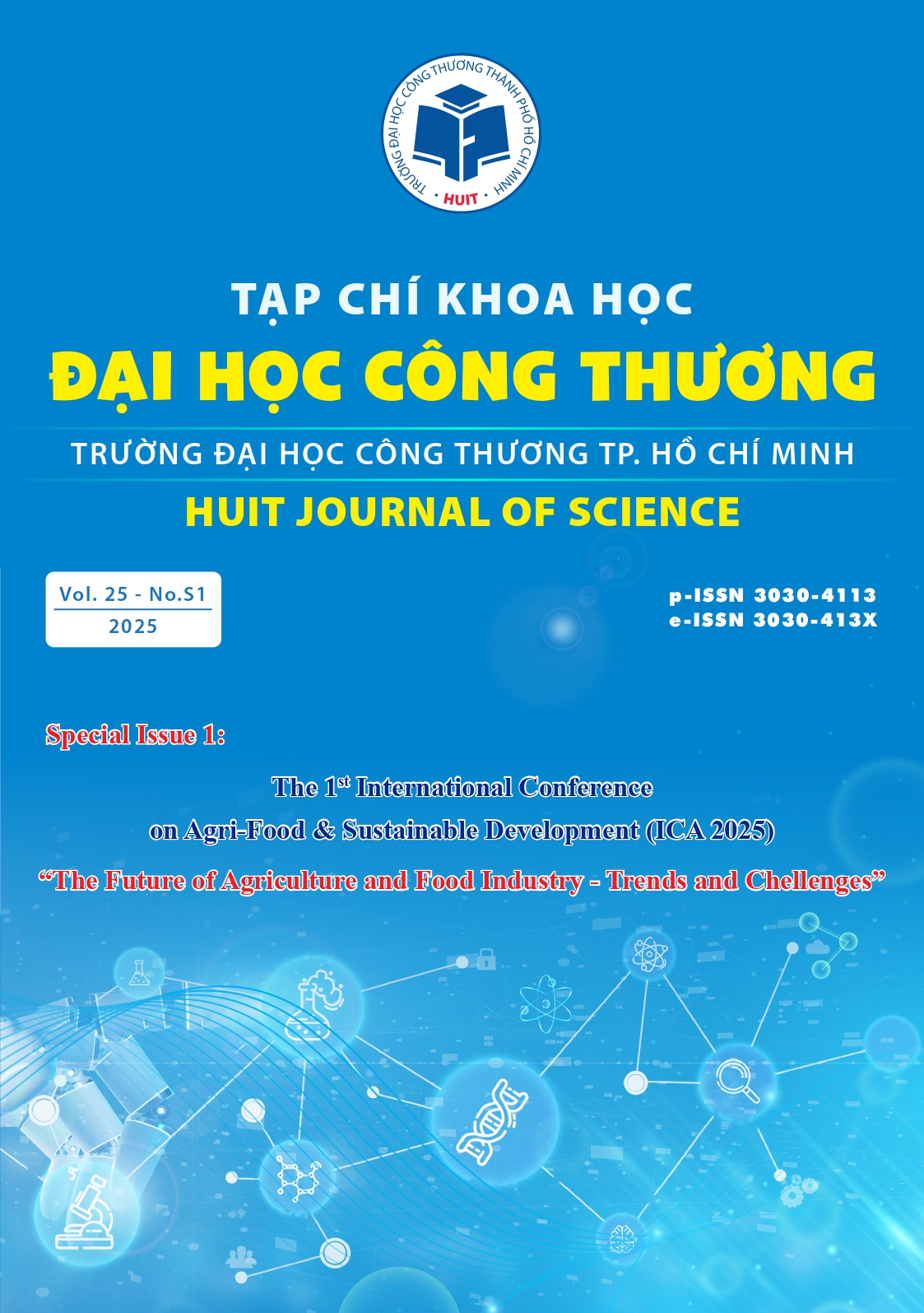Date Log
Copyright (c) 2025 HUIT Journal of Science

This work is licensed under a Creative Commons Attribution 4.0 International License.
ENHANCING COFFEE AROMAS AND FLAVOR: FERMENTING WITH LACTOBACILLUS PLANTARUM FOR AN IMPROVED COFFEE BREW
Corresponding Author(s) : relv
HUIT Journal of Science,
Vol. 25 No. S1 (ICA 2025)
Abstract
Civet coffee (Kopi Luwak) is renowned for its unique flavor and aroma profile, which
are attributed to enzymatic and microbial transformations occurring during digestion in the
civets’ gastrointestinal tracts. However, ethical concerns, sustainability issues, and
inconsistent quality due to uncontrolled animal digestion pose significant drawbacks to its
production. Given these disadvantages, this research aims to develop a specialty coffee that
replicates the unique characteristics of civet coffee without involving animal exploitation and
ethical concerns. As part of the study, several bacterial strains were isolated from civets’ feces
transported from Dak Lak, Vietnam. After identification and biochemical testing, they were
assumed to belong to Lactobacillus plantarum, a species of lactic acid bacteria commonly
found in various fermented foods, including dairy products, pickles, and sourdough. Depulped
coffee cherries were then fermented with those bacterial strains as starter cultures in optimized
conditions. Following fermentation, the chemical composition of the coffee bean was analyzed
using gas chromatography-mass spectrometry (GC-MS). The results indicated the changes in
the chemical compound profile and flavors, highlighting differences between the original and
fermented coffee beans. These findings suggest that microbial fermentation could serve as a
viable alternative to traditional civet coffee production, offering a more ethical and sustainable
approach while maintaining desirable flavor characteristics.
Download Citation
Endnote/Zotero/Mendeley (RIS)BibTeX
